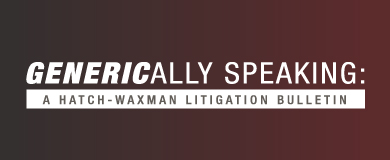- Acumen Powered by Robins Kaplan LLP®
- Affirmative Recovery
- American Indian Law and Policy
- Antitrust and Trade Regulation
- Appellate Advocacy and Guidance
- Business Litigation
- Civil Rights and Police Misconduct
- Class Action Litigation
- Commercial/Project Finance and Real Estate
- Corporate Governance and Special Situations
- Corporate Restructuring and Bankruptcy
- Domestic and International Arbitration
- Health Care Litigation
- Insurance and Catastrophic Loss
- Intellectual Property and Technology Litigation
- Mass Tort Attorneys
- Medical Malpractice Attorneys
- Personal Injury Attorneys
- Telecommunications Litigation and Arbitration
- Wealth Planning, Administration, and Disputes
Acumen Powered by Robins Kaplan LLP®
Ediscovery, Applied Science and Economics, and Litigation Support Solutions
-
June 1, 2022Chambers USA Recognizes Five Robins Kaplan Practice Groups And 17 Lawyers In 2022 Guide
-
June 1, 2022Seasoned Attorney Joins Firm’s Business Litigation Group
-
May 26, 2022Shira Shapiro Named Woman of Promise By The Pearl Society
-
June 3, 202219th Annual Advanced Insurance Law
-
June 9, 2022Building Your Brand: Perspectives and Insights from a Diverse Bar
-
June 10, 2022LGBTQ Legal Services: Transgender Name Change Clinic
-
May 24, 2022Briefly: Seeking Fees and Costs While on Appeal
-
May 19, 202211th Circ. Ban On Service Awards May Inhibit Class Actions
-
May 13, 2022Trademark Applications and the Murky Waters of Subject Matter Jurisdiction
-
June 2, 2022Sandberg Stepping Down as Meta COO After 14 Years
-
June 1, 2022Markets Revert to Recent Form as Pessimism Takes Hold
-
May 27, 2022Unexpectedly Strong Retail Sales Pull Markets Back from the Brink
Find additional firm contact information for press inquiries.
Find resources to help navigate legal and business complexities.
In re Sebela Patent Litigation
One of the patents-in-suit was not infringed because the IR spectrum of the generic product did not include each claimed peak, and the remaining patents-in-suit were invalid as obvious.
October 20, 2017

Case Name: In re Sebela Patent Litigation, 14-6414 (CCC) (MF), 2017 U.S. Dist. Lexis 128258 (D.N.J. Aug. 11, 2017) (Cecchi, J.)
Drug Product and Patents-in-Suit: Brisdelle® (paroxetine mesylate); U.S. Patents Nos. 7,598,271 (“the ’271 patent”), 8,658,663 (“the ’663 patent”), and 8,946,251 (“the ’251 patent”)
Nature of the Case and Issue(s) Presented: The ’271 patent claims a crystalline form of paroxetine mesylate. The ’663 and ’251 patents claim methods to treat thermoregulatory dysfunction (hot flashes). Plaintiff alleged that Defendants’ generic paroxetine mesylate product infringed the patents-in-suit. Defendants argued that their product did not infringe the ’271 patent and, even if it were to, the ’271 patent was invalid. Defendants stipulated to infringement of the ’663 patent and the ’251 patent, but argued that both patents were invalid. The court found that the ’271 patent was not infringed and the ’663 and ’251 patents were invalid.
Why Defendants Prevailed: The parties’ dispute relating to the infringement of the ’271 patent centered on a single issue: whether the generic products produced spectra with peaks that corresponded to the peaks claimed in the ’271 patent for IR spectroscopy. Citing to the Federal Circuit’s decision in Glaxo, Inc. v. Novopharm, Ltd., 180 F.3d 1562 (Fed. Cir. 1997), the court reasoned that each spectrum peak constituted an independent limitation that must be met for the generic products to infringe. Because, despite various contrary arguments, the generic products were missing at least one of the claimed spectrum peaks, and Plaintiff confirmed there was no mistake in the peaks listed in the claims, Defendants’ did not infringe the ’271 patent.
To invalidate the ’663 and ’251 patents, the court relied on four prior-art references. In combination, the prior art taught each treatment dosage claimed by the patents. While one dosage, 7.5 mg/day, was not explicitly disclosed in the prior art, the prior art taught a range of doses that include the 7.5 mg/day amount. Accordingly, each limitation of the claims was obvious in light of the prior art, and no secondary considerations countered obviousness.
Related Publications
Related News
If you are interested in having us represent you, you should call us so we can determine whether the matter is one for which we are willing or able to accept professional responsibility. We will not make this determination by e-mail communication. The telephone numbers and addresses for our offices are listed on this page. We reserve the right to decline any representation. We may be required to decline representation if it would create a conflict of interest with our other clients.
By accepting these terms, you are confirming that you have read and understood this important notice.
